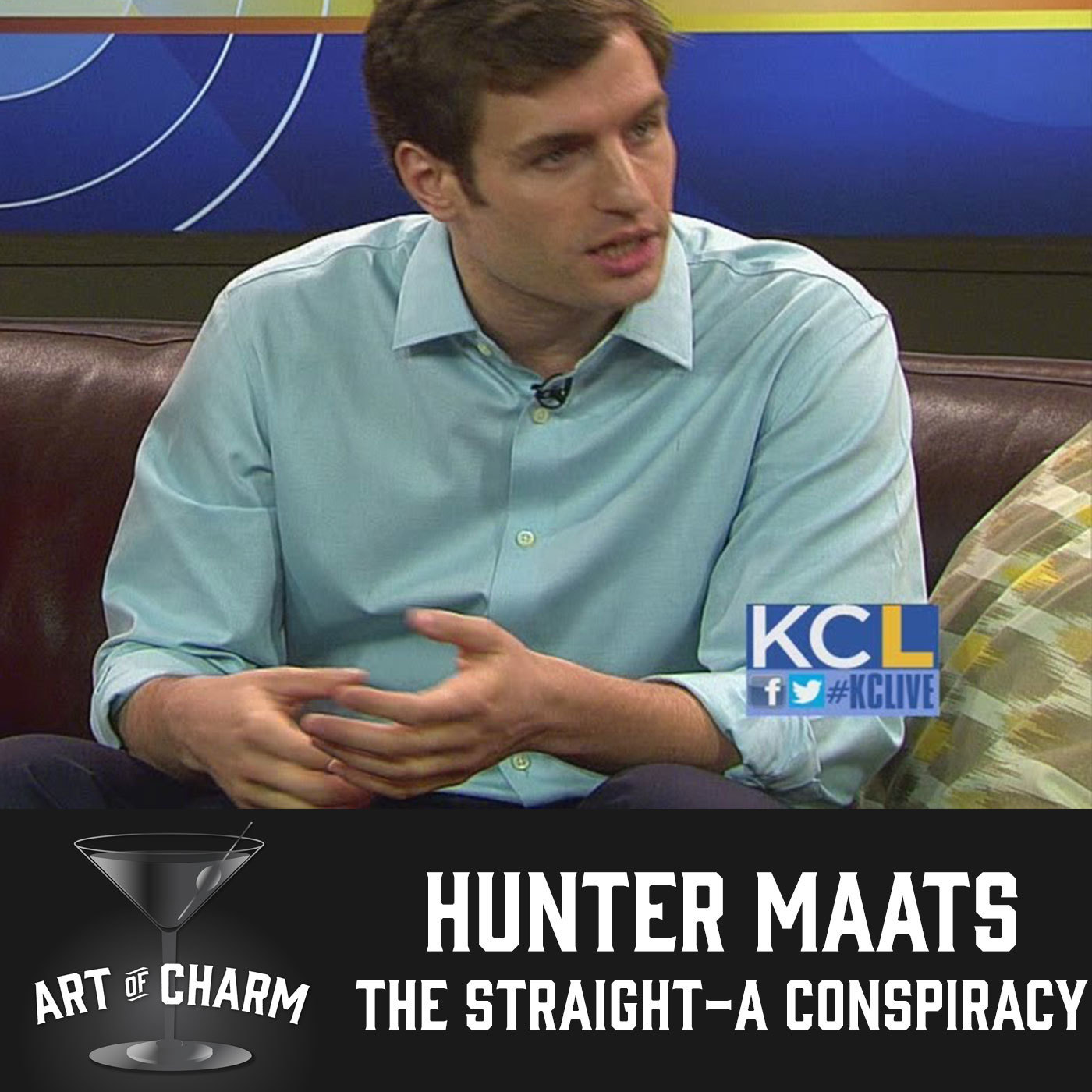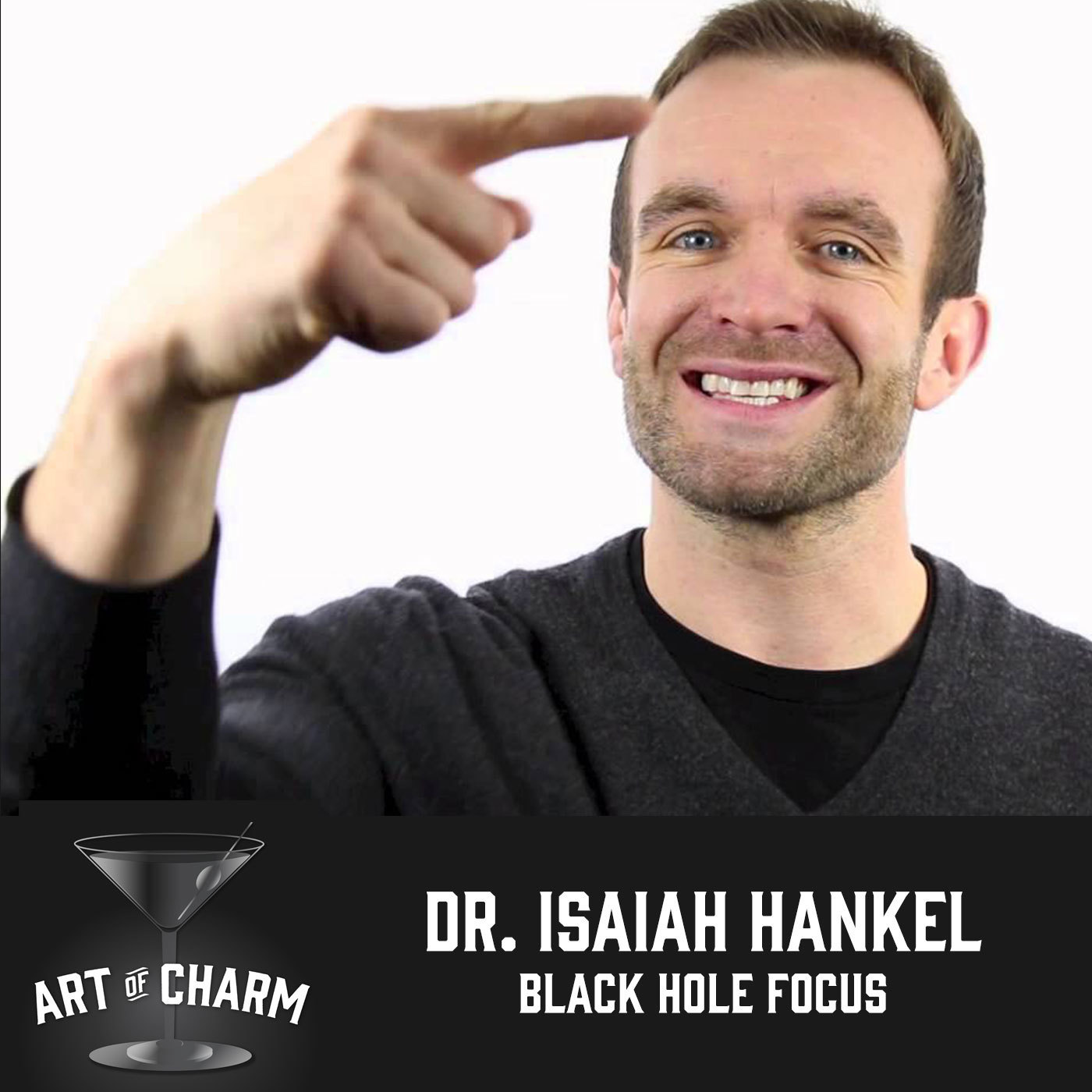
287: Hunter Maats | Straight-A Conspiracy
The Art of Charm
"It is our emotional experience that makes the difference in how we're learning." - Hunter Maats Can intelligence and mastery be learned or are we all innately good at some things and terrible at others? Is there really a "math" gene or can anyone, with enough practice, become great at Algebra? Hunter Maats, our guest for episode 287, says if you've learned one thing in your life, you can learn anything. And he is here to share the science that supports this belief. More About This Show: Hunter Maats, founder of Straight A Conspiracy and Harvard graduate, joins the Art of Charm to talk about numerous aspects of how and why we learn. To name just a few topics, we discuss the impact emotions have on our learning experience, the fallacy of genes giving us certain traits and not others, what the worst idea ever is and why you should forget it immediately, the danger of the 10,000-hour rule, and automaticity. On the point of emotions impacting our learning experiences, Hunter says science is now showing us that attitude and perspective make a significant difference in our ability to learn and retain something. For example, if you've ever said "I feel stupid" you're exemplifying his point. Stupid is associated with an actual feeling - shame. If we get something wrong and take it personally, we feel ashamed of our mistake and call ourselves stupid. There's nothing genetic about it, it's just our emotions and our personal association with the mistake. If we could change our perspective to simply acknowledge our mistake, examine it to learn where we went wrong and what we could do differently next time, we remove the shame and the feeling of being "stupid". You can change any experience, any mistake you've made by shifting your perspective and your attitude. Again, it has nothing to do with "certain genes" giving you certain talents. If you're willing to learn from a past failure, you can improve in that situation going forward. And if you approach every failure this way, you'll do nothing but get better and better. Need a quantifiable example? Airplanes. Though they weren't the safest machines when they were invented, today they are a regular part of most people's travel plans. And do you know why? Because after every airplane failure, the situation was examined until it was uncovered where things went wrong and what could be done to prevent the same mistakes in the future. Those preventions were put in the place each time a mistake was found and today, airplanes are safer than walking. The finer details of this show include: Team Descartes and Team Newton: dispelling the myth of gravity's discovery What's the best way to get people interested in you? Bill Bradley's practice strategies that led to becoming one of the greatest basketball players ever. The lesson from a Stone Age village in Papua New Guinea Why ADD medications effect everyone EQUALLY: the science behind it. And so much more! After Hunter and I cover that topic thoroughly, we discuss what he calls "the worst idea ever". What is it exactly? The idea that some people are either born smart or stupid. He says toss that idea out - stop thinking that you're either smart or not, you either have "it" or you don't. Science has yet to find a gene for above average to genius level intelligence. We haven't found any evidence to support a genetic link to intellect. That doesn't mean there isn't one, but we haven't found one yet. So get rid of that concept so it stops holding you back. Though we haven't found any genes that make one person more intelligent than another, we have found our brains to be flexible and adaptable. It's something we have as human beings: a capacity to adapt to our surroundings and circumstances. And that boils down to our brain's capacity to change and learn new things when we allow it to. Think that's a myth? Hunter talks about a village in Papa New Guinea where they were living at a Stone Age development level: no one could read or write let alone use modern day technology. However within two generations there has been a tremendous shift. First one man learned to read. Then this man's son taught himself how to use a computer! They went from not understanding a written language to using a computer. So if you think you can't learn to be charming, think again. And that led us into a discussion about the 10,000 hour rule made famous by Malcolm Gladwell. Hunter is in full support of this rule, with one contingency: be aware of the quality of those 10,000 hours. In other words, don't focus on the quantity of the practice, focus on the quality of it. Hunter calls this fix it focus practice. Pick something you want to work on - something specific - then fix whatever isn't working in that area and then focus on fixing it. Once it's fixed, move on to the next big. If you were a basketball player and wanted to become great, you would focus on one thing you didn't do well like free throws. That's your area to look at what isn't working and then fix it by working at it until you've got it down. You would do nothing but free throws until you were great at them and then you'd move on to the next thing, focus on that and fix it. One last topic we touched on was automaticity, or how our brains can do anything if we practice often enough. Think about it: you couldn't read, speak or walk when you were born. But you practiced and practiced speaking until you mastered it…then you moved on to walking until you mastered that and then on to reading. And today you do all three without thinking about them: that's automaticity and it's the most important trait of the human brain. We talk about plenty of other fascinating and cutting edge topics. Hunter seems to know every author and every book ever written about the human brain and he drops so many of them in this show! Be ready to add a LOT of titles to your reading device of choice after you tune in. A big shout out to Hunter in thanks for having me join him in person in Los Angeles; it was great to do a live show and go deep into such fascinating subject matter. Resources From This Episode Hunter's web site Hunter on Twitter The Straight A Conspiracy on Twitter Quiet: The Power of Introverts, Susan Cain The Sports Gene, David Epstein Guns, Germs and Steel: The Fates of Human Societies, Jared Diamond Boys Adrift, Leonard Sax, M.D., Ph.D. Spark: The Revolutionary New Science of Exercise and The Brain, Eric Hagerman You'll also like: -The Art of Charm Toolbox -Best of The Art of Charm Podcast HELP US SPREAD THE WORD! If you dug this episode, please subscribe in iTunes and write us a review! This is what helps us stand out from all the fluff out there. FEEDBACK + PROMOTION Hit us up with your comments and guest suggestions. We read EVERYTHING. Download the FREE AoC app for iPhone Email [email protected] Give us a call at 888.413.7177 Stay Charming!Next Episodes

286: Shawn Stevenson | Hack Your Sleep @ The Art of Charm
📆 2014-07-11 09:00 / ⌛ 00:51:08

284: Isaiah Hankel | Black Hole Focus @ The Art of Charm
📆 2014-07-07 09:00 / ⌛ 01:07:08

283: Ari Meisel | Less Doing, More Living @ The Art of Charm
📆 2014-07-04 09:00 / ⌛ 00:53:30

282: Dr. Sara Gottfried | Decoding Female Hormones @ The Art of Charm
📆 2014-07-02 09:00 / ⌛ 00:58:38

281: Vanessa Van Edwards | How to Read People Like a Book @ The Art of Charm
📆 2014-06-30 09:00 / ⌛ 01:02:35